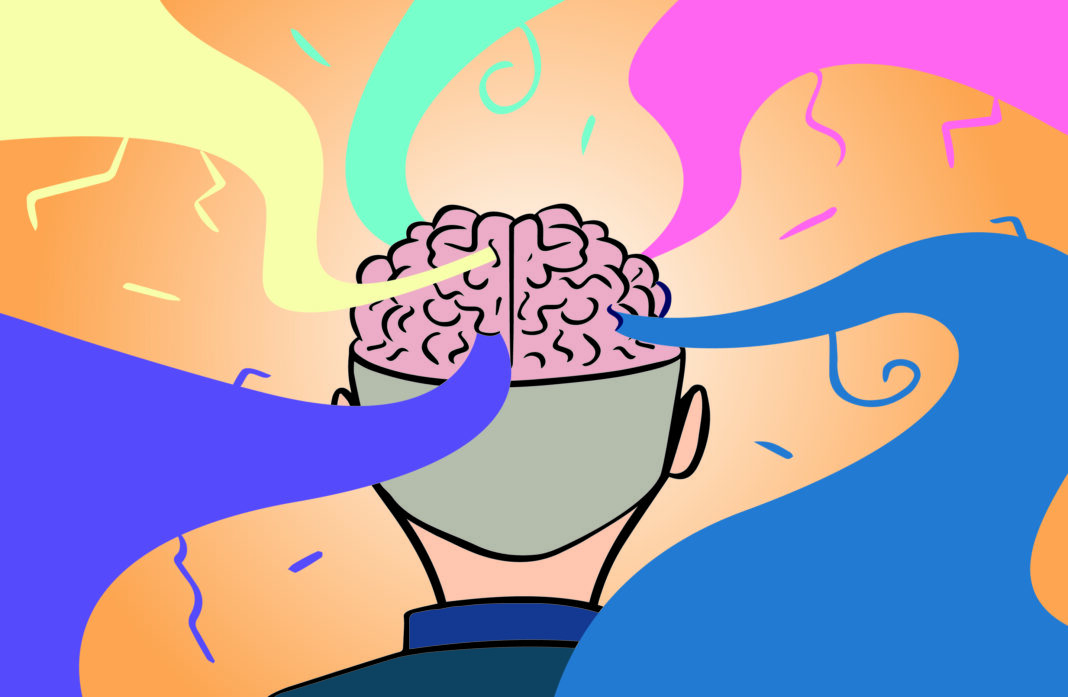A recent review published in Trends in Cognitive Sciences mentions that older adults (people aged 65 years and older) store excessive information in their brains, which often causes them to harbor “cluttered” memories. According to this study, cluttered memories make it more troublesome for older adults to recall precise and meticulous information compared with their younger counterparts. In other words, the accumulation of enormous quantities of real-life and semantic information across one’s lifetime has a few disadvantages, particularly concerning obliviousness or the lack of memory accompanying age-associated cognitive degeneration.
When a person attempts to access a memory, their brain rapidly scrutinizes all information stored in it to discover the applicable information. However, with age, several individuals struggle to retrieve their memories. Amer, Jordana Wynn, and Lynn Hasher analyzed over 20 years’ worth of investigation, including a range of behavioral and neuroimaging (brain images obtained by non-invasive techniques) studies. These researchers from Harvard University, Columbia University, and the University of Toronto established that cluttered memory images in older adults might make it challenging to suppress facts that are no longer pertinent while recalling a detailed episodic memory. Episodic memory refers to the ability to recall personal experiences and events, such as what you had for breakfast this morning or the subject you discussed at that office meeting yesterday. Remembering such episodic events is important for day-to-day activities.
Behavioral studies included in Amer and collaborators’ review involved displaying pictures with words printed on the top to older and younger adults. These words were generally considered distractions. The participants were initially requested to disregard the distracting words and specify if the succeeding picture they watched was similar to the preceding one. Next, they were examined on the words they had been instructed to disregard. Interestingly, older adults displayed better performance when the response to the question was a word located on the top of a picture. In other words, they used the distraction to aid them in solving the question.
The research team also revealed that older adults depend more profoundly on prior information than younger adults while performing a cognitive task. They principally focused on the problems posed by these cluttered memories, besides elucidating a small number of circumstances in which these cluttered memory scapes may prove beneficial. They mentioned that older adults generally display conserved, and occasionally heightened, imagination as a function of enhanced memories.
The team also obtained similar neuroimaging findings. In one research included in the review, younger and older adults were displayed images from two dissimilar categories (for example, landscapes and faces). After the disappearance of these images, they were requested to recall only one of the categories. The researchers simultaneously assessed the participants’ brain activity at the moment they were deciding the categories being detained in mind.
Unlike younger adults, their older counterparts recalled both irrelevant and relevant image categories. Moreover, the medial temporal lobe and hippocampus were more activated in the elderly.
Brain clutter can also pose challenges for older adults to precisely recollect the time and location of an explicit episodic event in the presence of irrelevant information. Amer and collaborators further postulated that prior knowledge might substantially assist older adults during decision-making, which may be based on their amassed wisdom. However, they also mentioned that “not all clutter is bad.” Cluttered memories in older adults were found to pave the way for original thoughts and ideas. Thus, findings from the review suggested that the creativity of older adults possibly gains assistance from unsystematic associations developed during the recollection of apparently irrelevant facts.
With continuous study and improved understanding of memory functioning in the elderly, the researchers anticipate identifying new ways to support them. The augmented binding and enriched encodings in older adults can be utilized to advance their cognitive abilities.
References
Amer, T., Wynn, J. S., & Hasher, L. (2022). Cluttered memory representations shape cognition in old age. Trends in Cognitive Sciences. https://doi.org/10.1016/j.tics.2021.12.002
Weeks, J. C., Grady, C. L., Hasher, L., & Buchsbaum, B. R. (2020). Holding on to the past: Older adults show lingering neural activation of no-longer-relevant items in working memory. Journal of Cognitive Neuroscience, 32(10), 1946-1962. https://doi.org/10.1162/jocn_a_01596
Worthy, D. A., Gorlick, M. A., Pacheco, J. L., Schnyer, D. M., & Maddox, W. T. (2011). With age comes wisdom: Decision making in younger and older adults. Psychological science, 22(11), 1375-1380. https://doi.org/10.1177%2F0956797611420301
Kim, S., Hasher, L., & Zacks, R. T. (2007). Aging and a benefit of distractibility. Psychonomic bulletin & review, 14(2), 301-305. https://doi.org/10.3758/BF03194068 Campbell, K. L., Hasher, L., & Thomas, R. C. (2010). Hyper-binding: A unique age effect. Psychological Science, 21(3), 399-405. https://doi.org/10.1177%2F0956797609359910
Featured illustration by Dana Dumea.





